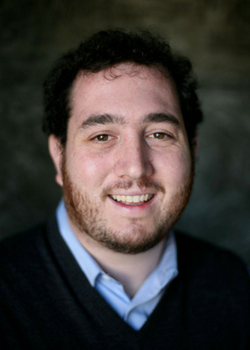Last year I took a group of high school students to New Orleans to do relief work in the Lower Ninth Ward. After five days of hard work - painting and rebuilding homes devastated from Hurricane Katrina - we visited to the French Quarter. A funny thing kept happening to us as we wandered the narrow streets. We continually found money scattered on the sidewalk or sitting in dark stairwells. By the time the night was over, we had found nearly $140 in misplaced cash!
This, of course, led to a lively debate among the students about what to do with this windfall. Some suggested that we bring it to the police. Others thought we should donate it to the rebuilding organization we were serving. To their credit, not a single student suggested spending it on more beignets. I was particularly delighted, because this experience gave me the opportunity to teach one of my favorite sections from the Talmud a discussion referred to as "Elu Metziot,"-- that details the laws of lost and found property.
The central concept that emerges from this ancient discussion is the idea of "Ye'ush." Ye'ush literally means "to give up on." A lost object that has been found must be returned to its owner, so long as the owner has not yet done Ye'ush - given up on ever recovering the object. Once the owner has resolved that the lost object is irretrievably gone, it ceases to be that person's property. It becomes free.
In its original context, Ye'ush referred only to lost physical property, but its spiritual power extends far beyond that definition. There can be a letting go of disappointments, of hopes, of grudges, and of desires. In some ways, this Ye'ush is sad, because it means letting go of the possibility that what was lost might someday be restored, that what is broken might ever be repaired. But Ye'ush can also be a source of liberation. It is a rest from the constant what-ifs and if-onlys that accompany so many of us for so much of our lives. It is an invitation to honor loss, and to then get on with the rest of life.
Last week's parasha, Vayera, is among the most traumatic of the Torah. It tells the terrifying stories of two sons who endure two awful fates. Ishmael, Abraham's eldest, is banished to the desert - driven from the only home he ever knew, with only a slim chance of survival. In the next chapter, Abraham's second son, Isaac, is led up a mountain, bound to an altar, and saved only at the last moment from his father's eager knife. While both sons survive their close encounters with death, their family is shattered. No one ever speaks again - neither Abraham and Sarah, nor Abraham and either of his children.
Our parasha, Hayye Sarah, has its own share of heartache, but it ends with a profoundly redemptive moment. At the close of this week's reading, Isaac and Ishmael come together to bury their father. Two brothers, torn apart by trauma, meet again to quite literally bury the past. This is an extraordinary moment of Ye'ush. What has been lost to them - love, innocence, a sense of security - will never fully be restored. Yet, in this moment, we bear witness to their placing the past in the ground. We can imagine them walking away from the gravesite, perhaps with tears in their eyes, but also perhaps with a great sense of liberation.
Perhaps this is the reason that according to halakha, Jewish Law, one does not begin reciting the Mourners Kaddish for a loved one until they have been buried. Kaddish, which ultimately is a prayer of redemptive, ongoing faith in the face of grief, cannot begin until the rituals of letting go have been completed. Our tradition teaches that only when we can acknowledge that our loved ones are gone forever, can we begin to contemplate returning to life ourselves.
Thus, Ye'ush is potentially among the most redemptive forces in our lives. It is not about forgetting our losses; it is about releasing them. It is about recognizing what can be mended and what cannot, and being prepared to let go. Every one of us has things that we have schlepped around for too long - a relationship that will not be fixed, a dream that will not come to pass, a wish for things to have turned out differently. Ultimately, and in our own time, there must come to each of us a moment of Ye'ush - of letting go so that new possibility has the space to enter.
On Shabbat Hayye Sarah, we are called to have the courage of Ishmael and Isaac, who were able to do the painful and powerful work of putting their past behind them. We are taught, gently but persistently, of the value of setting down our burdens and embracing a new future. We are offered the capacity to walk toward a tomorrow that is undefined, but in which we are completely free.
Shabbat Shalom.

